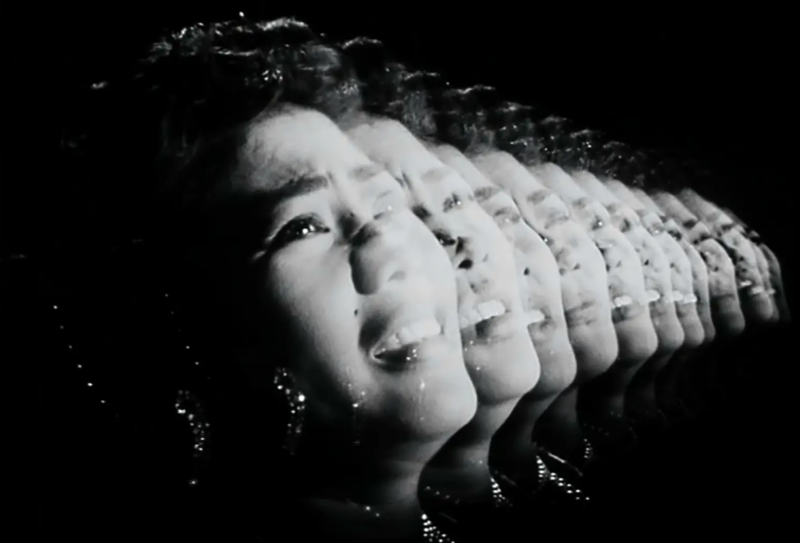
Bite the tongue is an online programme investigating notions of language and translation (or absence thereof) in the context of Southeast Asia. Fostering interdisciplinary modes of inquiry, it dives into the fields of filmmaking, anthropology, critical theory, literature, artistic research, archival methodologies and visual cultures. All content will be accessible for free on bitethetongue.com from January 22, 2021, for the duration of a year.
The title, Bite the tongue, is borrowed from Theresa Hak Kyung Cha’s Dictee. In the context of her writing, the phrase is a meditation (and lamentation) on the pain of speech. The phrase alludes to a severance of mother language, diasporic alienation and swallowing of verbal trauma. When we bite the tongue, are we able to sidestep the limitations of speech? Could we, bypass definition and absolution, laying bare space ready for transmission without destination?
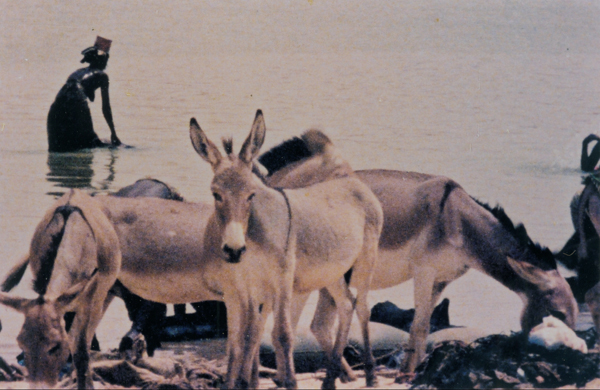
The programme opens with Trinh T. Minh-ha’s The Language of Nativism: Anthropology as a Scientific Conversation of Man with Man published in 1989 in Woman, Native, Other: Writing Postcoloniality and Feminism in which the filmmaker and writer enlists the writing of the native as a writing off rather than a writing of; a performance of erasure delivered by the movement of the pen. In the three subchapters republished by Bite the tongue, Minh-ha’s expresses the impossibility of nativist interpretation and the importance of moving towards the embodiment of language as the locus of traditions that unlocks a historical dimension superseding scientific gossip.
Emancipated from gossip, Bite the tongue evolves in the terrains of counter-languages, untranslatability, dialects, social accents, oral archives and other embodied transmissions with the work of thinkers and artists Nazry Bahrawi, Melissa De Silva, Jalan Besar Salon, Lee Jing Jing, Russell Morton, Nguyễn + Transitory, Nuraliah Norasid, Miko Revereza, Toh Hun Ping and Wong Bing Hao.
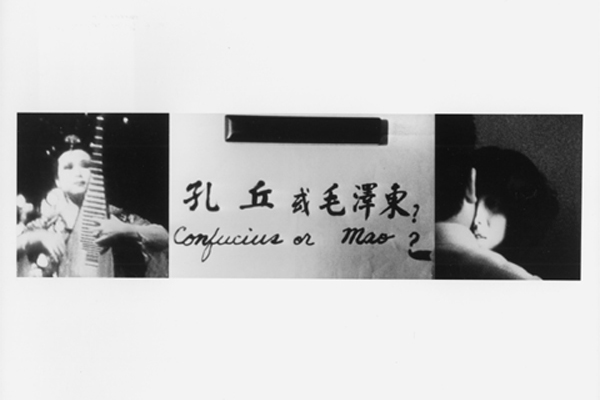
Bite the tongue evolves from Nameless. echoes, spectres, hisses (June 22—July 20, 2020), an online screening programme of films, commissioned text and field recordings reflecting on the relationships between sound and place in the context of Southeast Asia. The last screening concluded with having-seen-snake by Sriwhana Spong, a reflection on the act of naming and the act of pulling the other into culture. Bite the tongue takes this reflection on the prelinguistic as a point of departure, travelling towards the multi-versed.
Contributor Bios
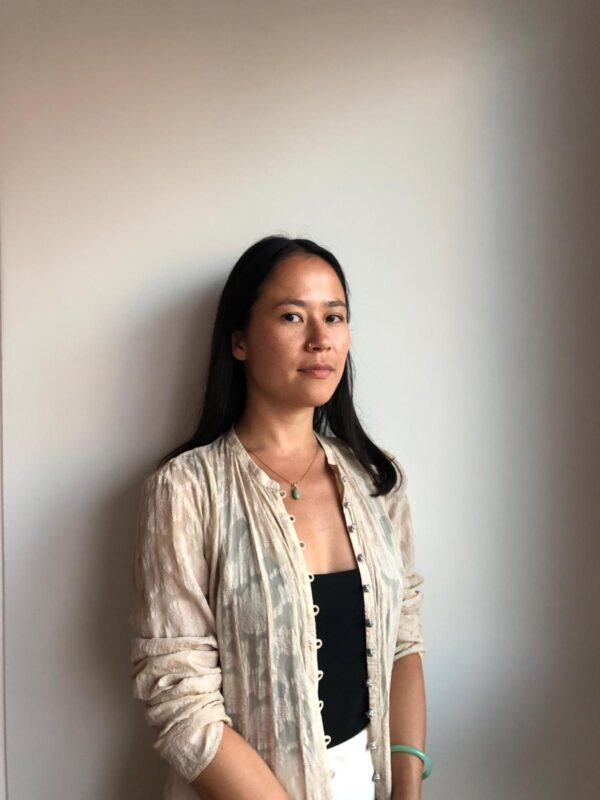 Jade Barget is a cultural worker and researcher based between London and Paris. Her research centres on the sensuous exchange between viewer and film, embodied spectatorship and affect. She holds a specific interest in moving image culture and performance practices.
Jade Barget is a cultural worker and researcher based between London and Paris. Her research centres on the sensuous exchange between viewer and film, embodied spectatorship and affect. She holds a specific interest in moving image culture and performance practices.
In 2020, she co-curated Nameless. echoes, specters, hisses for XING and Sets and Scenarios for Nottingham Contemporary, and graduated from the Curating Contemporary Art department at the Royal College of Art, London, with distinctions. She has written for AQNB, Unseen and Untitled-Folder. jadebarget.com
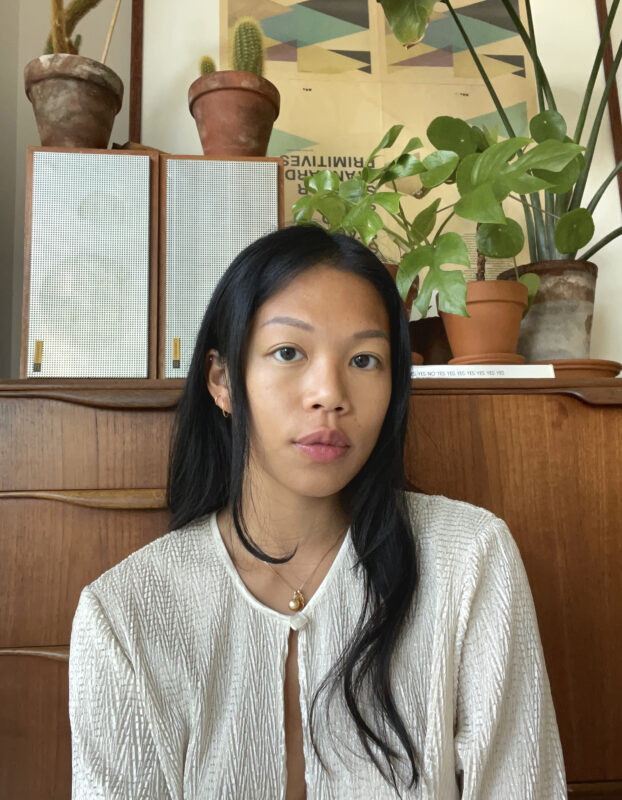 Elizabeth Gabrielle Lee is an artist and cultural researcher. Her practice is guided by the iterations of slow violence and the dynamic between the ‘near’ and ‘elsewhere’. In attempting to disarm instruments of knowledge production, her practice shies away from reduction and completion. Steering away from essentialisms, she is interested in once-forgotten micro and muted narratives. By revisioning fractured traditions, she engages with visual and textual interventions to navigate the nuances of perception and retention.
Elizabeth Gabrielle Lee is an artist and cultural researcher. Her practice is guided by the iterations of slow violence and the dynamic between the ‘near’ and ‘elsewhere’. In attempting to disarm instruments of knowledge production, her practice shies away from reduction and completion. Steering away from essentialisms, she is interested in once-forgotten micro and muted narratives. By revisioning fractured traditions, she engages with visual and textual interventions to navigate the nuances of perception and retention.
She is an Associate Lecturer in the School of Fine Art & Photography, University for the Creative Arts in Rochester (UK). She has been the recipient of grants from the National Arts Council (Singapore).


